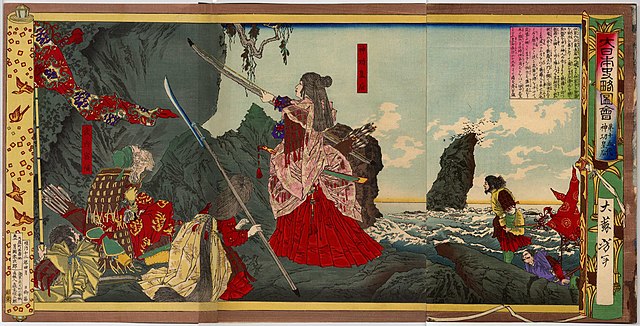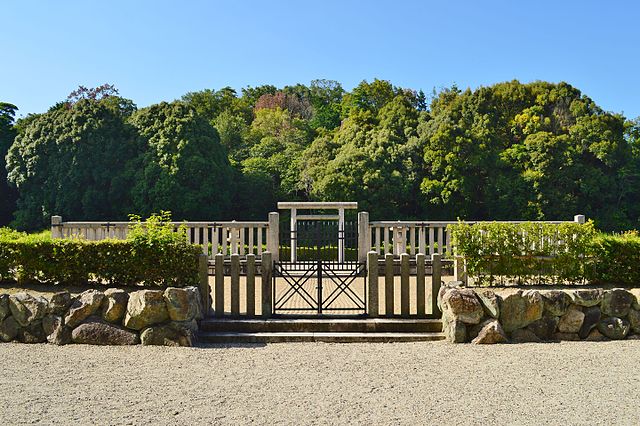Emperor Chūai , also known as Tarashinakatsuhiko no Sumeramikoto (足仲彦天皇) was the 14th legendary Emperor of Japan, according to the traditional order of succession. Both the Kojiki, and the Nihon Shoki record events that took place during Chūai's alleged lifetime. Chūai is the first monarch to ascend the throne who was not a son of the previous Emperor as the latter's only child died young. He is also noted for having his capital in Kyushu, rather than Yamato like his predecessors. The records state that Chūai had a wife named Okinagatarashihime-no-Mikoto, and 2 consorts that all bore him 4 children.
Okamisanzai Kofun [ja] the possible resting spot of Emperor Chuai
Empress Jingū was a legendary Japanese empress who ruled as a regent following her husband's death in 200 AD. Both the Kojiki and the Nihon Shoki record events that took place during Jingū's alleged lifetime. Legends say that after seeking revenge on the people who murdered her husband, she then turned her attention to a "promised land". Jingū is thus considered to be a controversial monarch by historians in terms of her alleged invasion of the Korean Peninsula. This was in turn possibly used as justification for imperial expansion during the Meiji period. The records state that Jingū gave birth to a baby boy whom she named Homutawake three years after he was conceived by her late husband.
Woodblock print by Utagawa Kuniyoshi, c. 1843-44
Empress Jingū, woodblock print by Tsukioka Yoshitoshi (1880)
Empress Jingū and Takenouchi no Sukune Fishing at Chikuzen
Gosashi kofun (tomb)

![Okamisanzai Kofun [ja] the possible resting spot of Emperor Chuai](https://upload.wikimedia.org/wikipedia/commons/thumb/b/be/Oka_Misanzai_Kofun%2C_haisho-2.jpg/640px-Oka_Misanzai_Kofun%2C_haisho-2.jpg)



